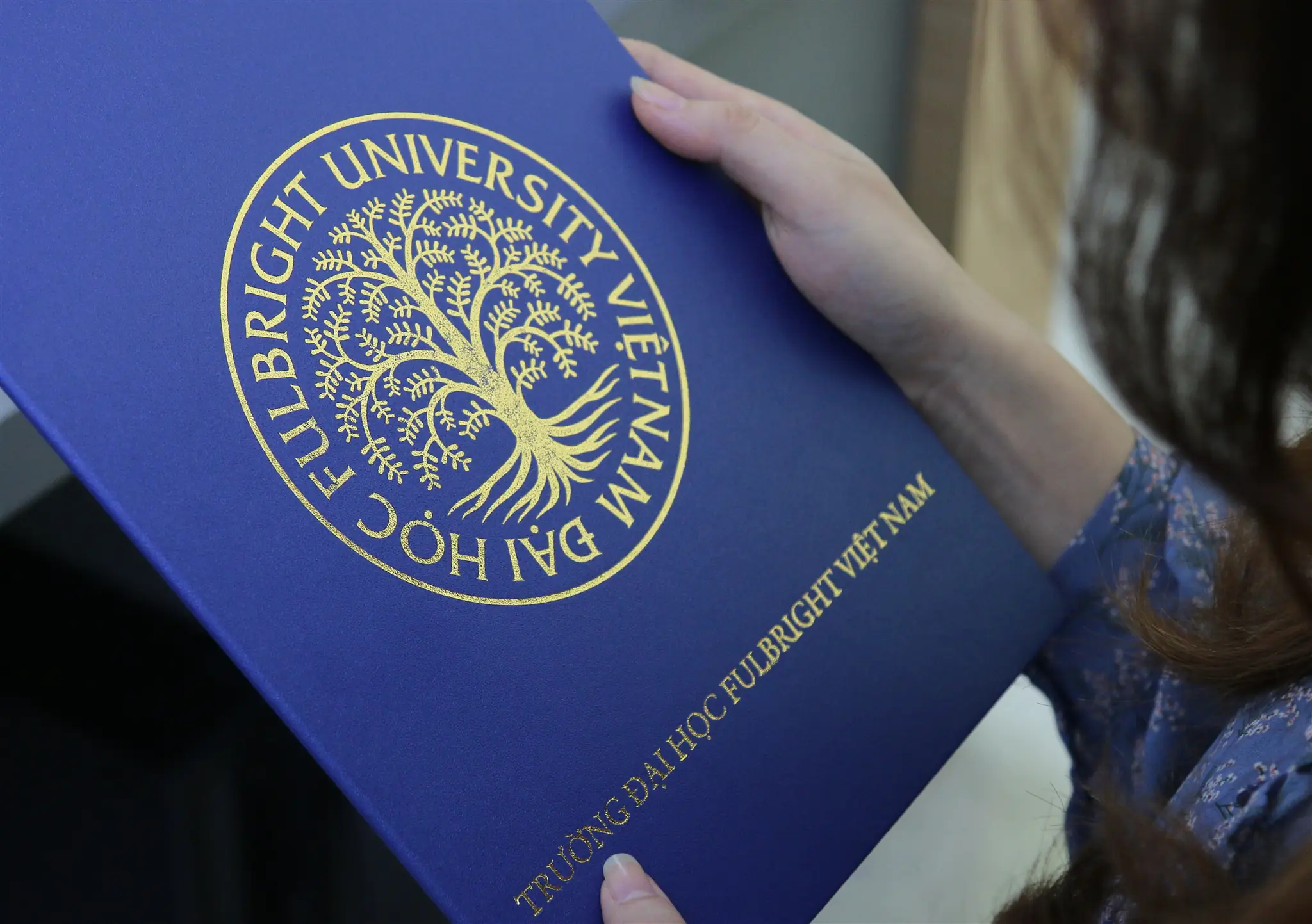
Have you ever wondered how to make vital decisions when doing business? Have you ever been amazed by how a business allocates resources, predicts market trends, and keeps every factor running seamlessly? If you answer yes to these questions, the Applied Economics and Management major is a good fit for you. Let’s dive deeper into this topic with Fulbright.
Article Table of Contents
What is Applied Economics and Management?
Applied Economics and Management is an interdisciplinary business program that equips students with the skills to interpret data and figures and draw logical evaluations based on economic theoretical applications to make credible solutions. The program aims to enhance students’ technical and soft skills, including problem-solving, critical thinking, analytical thinking, etc., to help them comprehend and evaluate real-life business challenges. By doing so, students can become brilliant candidates with the full capability and professional knowledge to navigate real-world scenarios and stand out in a competitive labor market.
What are the aspiring traits for an Applied Economics and Management major?
Applied Economics and Management equips you with a valuable skill set and a solid knowledge base for step-by-step adaptation to the evolving landscape of globalization and digitization. These skills and knowledge unlock new versions of learners while opening doors to endless career prospects in many fields, such as finance, management, consulting, international trade, etc.
Analytical thinking
Analytical thinking involves collecting, interpreting, and transforming complex data sets into meaningful insights. An analytical thinker systematically develops ideas to produce the most effective results. Moreover, they can anticipate potential risks and developments to refine and enhance earlier hypotheses.
Given the vast array of information accessible via social media and news outlets, analytical thinking is crucial for filtering through the data to assess the veracity of a problem. In academia, particularly in Applied Economics and Management, analytical thinking helps students analyze economic data and market fluctuations to better understand the underlying causes of issues. On the other hand, this skill involves identifying and mitigating risks associated with business decisions and evaluating the potential impact of government policies on the economy. By developing strong analytical thinking skills, you can become a more effective problem-solver and decision-maker in applied economics and management.

Analytical thinking is an individual’s ability to identify complicated datasets to create logical solutions. (Source: Corporate Finance Institute)
Communication and Management
Communication is the exchange of information between two or more individuals. While machines are increasingly involved, this topic focuses on human communication. Effective communication is essential for all management roles, including project planning, resource allocation, leadership, and risk management. Managers must be able to gather precise information to devise plans and impart clear instructions for their implementation. Accurate dissemination and reception of data enable effective communication across an organization. Conversely, when information is misinterpreted, or incorrect data spreads, it can lead to communication breakdowns that pose business challenges.
Therefore, anyone majoring in Applied Economics and Management is encouraged to communicate effectively and concisely and manage operational processes professionally. These soft skills have tremendous practical value, especially in the business world. They directly contribute to building strong relationships and fostering a positive work environment.
Critical thinking and Problem-solving
Critical thinking and problem-solving refer to using knowledge, facts, and data to solve problems effectively. This doesn’t mean you need to have an immediate answer; it means you have to be able to think on your feet, assess problems, and find solutions.
In the dynamic world of applied economics and management, critical thinking and problem-solving are not just complementary skills; they’re the cornerstones of success. Critical thinking empowers you to question assumptions, identify biases in data, and consider alternative viewpoints. This ability to dissect information allows you to uncover hidden patterns, anticipate challenges, and, ultimately, develop innovative solutions to complex problems.
Launched in 2016, Fulbright University Vietnam is Vietnam’s first independent, not-for-profit, liberal arts university founded on a Vietnamese-American partnership. The Fulbright model is based on American traditions of rigorous liberal arts education while firmly rooted in Vietnam’s culture and heritage. Fulbright’s interdisciplinary pedagogy enhances students’ critical thinking, analytical skills, moral reasoning, and creative problem-solving, with an aspiration for innovation and lifelong learning.
The Fulbright curriculum and academic environment are student-centered and respect the uniqueness of each individual joining Fulbright. By cultivating an environment of intellectual curiosity, pioneering spirit, and caring for others, Fulbright fosters its students into daring, versatile individuals with the courage to lead Vietnam’s and the world’s futures.
The first year at Fulbright begins with the Core Curriculum comprising five essential courses. The program aims to provide an equal learning environment for students at all levels, assisting them in discovering their potential and overcoming knowledge gaps. The challenges encountered in the foundational program will signify the start of a journey to cultivate critical thinking skills, apply specialized knowledge, and effectively resolve problems. Students can also integrate Elective/Exploratory courses to broaden their expertise in various fields.
At the end of their second year, students officially choose the major they want to pursue among the 11 majors Fulbright teaches. Each major provides a thoughtfully curated and structured curriculum, enabling students to acquire foundational knowledge and attain a high degree of proficiency in their field of study. Fulbright offers various majors–in the fields of Arts and Humanities, Mathematics and Computing, Science and Engineering, and Social Sciences. Fulbright students can also pursue double majors to combine multiple interests. For example, at Fulbright, the student’s transcripts show subjects from both majors when studying a double major in Psychology and Economics. After graduation, students are required to obtain two degrees and transcripts elaborating on the major pursued.
If interested in the study program at Fulbright University Vietnam, students and parents can refer to the following information:
- Learn about scholarships: https://fulbright.edu.vn/vi/hoc-bong/
- Learn about how to apply to Fulbright: https://fulbright.edu.vn/vi/apply-to-us/
- Receive direct consultation and experience Fulbright with us: https://fulbright.edu.vn/vi/contact-us/

A degree from Fulbright University Vietnam is an opportunity for students to open many doors in the future. (Source: Fulbright)
Emotional intelligence
Emotional intelligence is the ability to understand and control one’s emotions and the emotions of others. In teamwork, a student studying Applied Economics and Management who knows how to work well with others can figure out the strengths and weaknesses of each team member, delegate tasks fairly, and give constructive feedback for team development.
At Fulbright, students can increase their strength in emotional intelligence by pursuing a double major in Psychology and one of their interests. For example, Economics students can further understand consumer behavior and insights into market research and campaign ideas. Therefore, a double major in Economics and Psychology will be a powerful tool for aspiring learners to gain distinctive advantages in the job market.

Emotional intelligence is managing emotions and actions to enhance interpersonal relationships. (Source: KC Consulting)
Is Economics different from Applied Economics?
Economics is a social science that determines the production, distribution, and consumption of goods and services. On the other hand, Applied Economics concerns itself with using economic theory to derive implications for decision making and public policy by examining issues in microeconomics, macroeconomics, or both. While Economics generally focuses on theories, Applied Economics helps businesses and governments evaluate risks and apply proper solutions based on data trends.
What are the job prospects for the Applied Economics and Management major?
With a degree in Applied Economics and Management, you are equipped for a job profile with enormous competitive advantages. The Applied Economics and Management major offers numerous career opportunities in various industries, from consulting and finance to public policy.
There are different job positions for candidates with an Applied Economics and Management degree, including but not limited to:
- Socio-economic Researcher
- Competition Law Officer
- Market research Analyst
- Financial Analyst
- Economics Project Officer
- Business Advisor
- Economist.
Will Economics at Fulbright University Vietnam be your choice?
Fulbright University Vietnam is Vietnam’s first independent, not-for-profit, liberal arts university. At Fulbright, students study with lecturers who are Ph.D. holders from the world’s leading universities and are supported by a network of leading leaders and experts in many fields.
The Economics major at Fulbright prepares learners with essential knowledge to actively participate in the private and public sectors domestically and globally. Economics studies the decisions of individuals, companies, communities, and countries about time, money, and resource allocation. The decision-making process and the impact of these decisions on society highlight important issues of efficiency and fairness. This encourages students to consider economic principles from various perspectives, including historical, political, and cultural contexts. To pursue a degree in Economics at Fulbright University Vietnam, learners must have a solid background in mathematics. A good understanding of calculus, linear algebra, differential equations, and analysis will bring vast advantages to successfully pursuing this field of study.
Fulbright’s pedagogical approach provides students with a solid economic theoretical foundation and helps them understand the national and international economic landscape. With the knowledge and experience of lecturers from many countries worldwide, Fulbright lectures provide multi-dimensional perspectives that deeply reflect Vietnamese economic reality.
You can visit the following pages to find more information about the Economics major at Fulbright University Vietnam:
- Learn about Economic majors: https://fulbright.edu.vn/major/economics/
- Learn about scholarships: https://fulbright.edu.vn/vi/hoc-bong/
- Learn about how to apply to Fulbright: https://fulbright.edu.vn/vi/apply-to-us/
- Receive direct consultation and experience Fulbright with us: https://fulbright.edu.vn/vi/contact-us/

Dr. Nguyen Chi Hieu is a visiting lecturer in Economics at Fulbright University Vietnam. (Source: Fulbright)
You now have a deeper understanding of the Applied Economics and Management major. Remember, passion and interest are crucial, regardless of the field you ultimately choose to pursue. If you find yourself captivated by economic issues, and if the idea of contributing to social advancement and excelling in critical thinking and data analysis resonates with you, then majoring in Economics could be a wise consideration.








